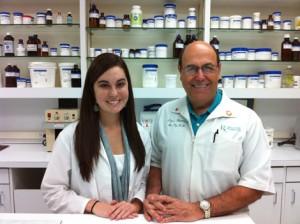Preceptor Development Resources

The following resources may be utilized by University of Texas at Austin College of Pharmacy affiliated residency programs for use in Residency Preceptor Development Programs.
This content provides preceptors with the opportunity for development of precepting skills. It is the responsibility of each individual preceptor to participate in opportunities offered.
Preceptor Development Activities
Suggested Required Activities
- New preceptor orientation (new preceptor orientation should occur when a new pharmacist is ready to take residents)
- Preceptor assessment (ability to meet preceptor criteria) should be done during pharmacist position interviews and during orientation
- Overview of the PGY1 Residency (i.e., goals, structure, policies, resident responsibilities, preceptor responsibilities)
- Introduction to PharmAcademic® (if applicable)
- All preceptor pharmacists are required to maintain ACPE accredited C.E. units sufficient to satisfy both state pharmacist licensure AND state pharmacist preceptor certification.
- Participation in Residency Advisory Committee Meeting
- Participation in Residency Preceptor Meeting (Quarterly)
- Participation in Residency Interviews
- Addressing any deficiencies in preceptor performance and ensuring appropriate training is received to correct deficiencies
- Keeping up with the current literature topics relevant to improving precepting, mentoring and teaching skills
- Ongoing self-evaluation of their own preceptor skills by listening to the feedback they receive from the residents, other preceptors and the RPD
- Actively seeking out training for self-improvement in their precepting skills
- Documenting their preceptor development training on an annual basis
Encouraged Activities
- Participating in and facilitating informal preceptor development discussions at scheduled residency preceptor meetings (i.e. generational gap presentation, leadership presentation, pharmacy topic video, presentation of clinical pearls, book reviews)
- Attending local, state, and national programs and bringing information back to share with other preceptors
- Participating in training offered by The University of Texas at Austin College of Pharmacy on preceptor development issues
- Actively pursuing scholarship activities in a variety of areas, such as formal presentations, participating as a journal reviewer, writing and submitting publications, performing research
- Preceptors are encouraged to acquire board certification, fellow status, etc. for formal recognition by peers as a model practitioner
Helpful Links
UT College of Pharmacy Online Preceptor Orientation and Training Activities
Board of Pharmaceutical Specialties Certification - Provides certification in 5 areas of pharmacy: nuclear, nutrition support, oncology, pharmacotherapy, and psychiatric
American Society of Health System Pharmacists (ASHP)
American College of Clinical Pharmacy (ACCP)
American Pharmacists Association (APhA)
American Society of Consultant Pharmacists (ASCP)
ASHP Midyear Clinical Meeting Poster Abstract Reviewer - Forms must be received by June 1 in order to be considered for the December Midyear Clinical Meeting

